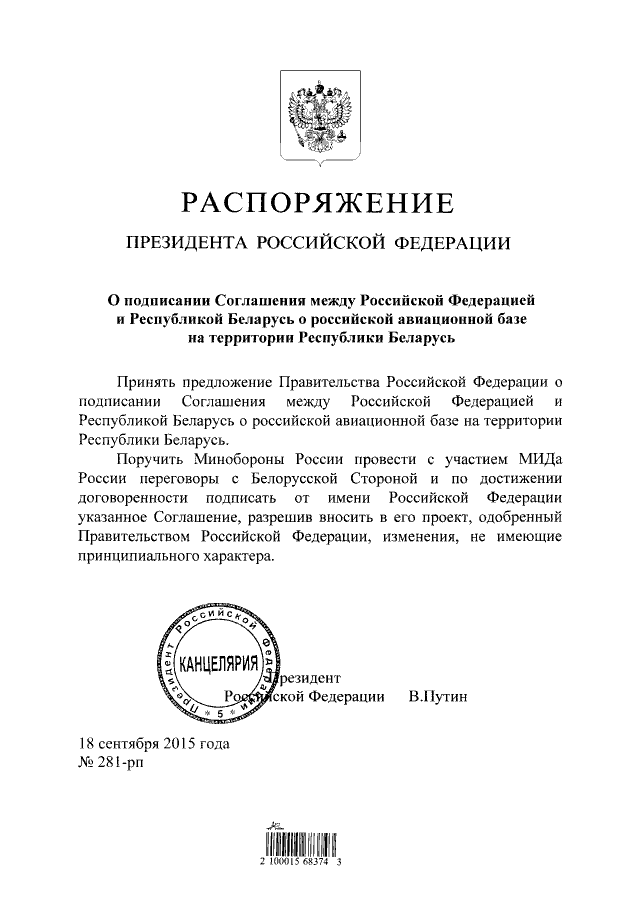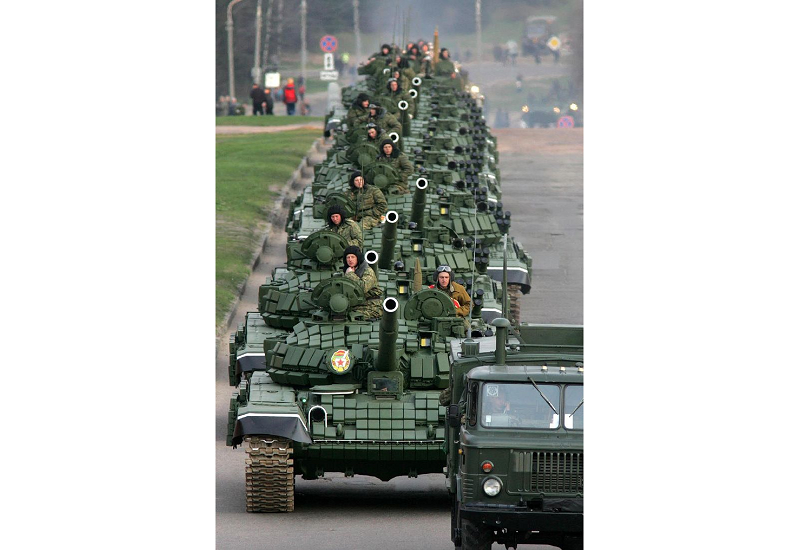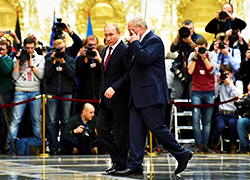But amid the unprecedented anti-Lukashenka rallies, the Belarusian riot police have increasingly been siding with the protesters, with some joining the #NotMyPresident anti-Lukashenka flashmob. Who joins the riot police and how does the system work? One ex-riot policeman from Belarus shares his story.
A couple of years ago, S. served in the Belarusian riot police. Being disappointed with the job, he quitted and studied frontend — now he works remotely for a Ukrainian IT company. He talked with dev.by bout his riot police job routine, the professional culture that prevails among post-soviet siloviki (law enforcers), and how it was to leave for IT:
"Normally, guys from the province join the riot police: they are provided with a place in the dormitory, they can take a mortgage for an apartment, the salary is fine — 800–900 BYN (290–330 euro) for starters. What else do you need? They were joking: 'We beat people, and so what?' And I didn’t find it funny. I didn’t understand them."
Belarusian OMON and other siloviki whom S talks about are similar in all post-Soviet countries. Usually, not the best staff is recruited to the riot police and brutality is common for servicemen. In Ukraine, although most scandalous Berkut units were disbanded after Maidan in 2014, former Berkut servicemen continue their service in other police troops today.
I threw the shield down and said: “I’m done! It's like they think we are a herd”
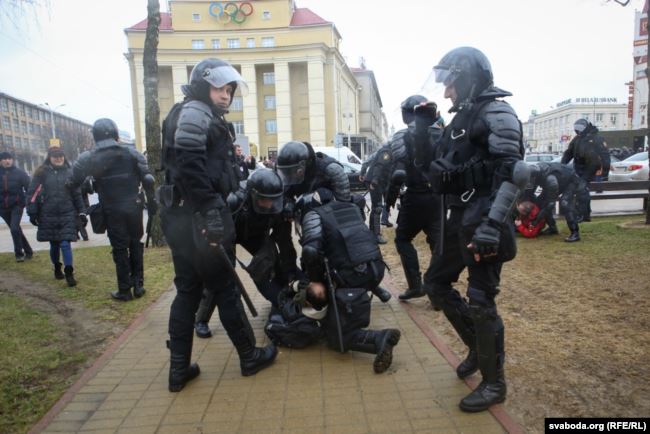
In my youth, I was keen on sports, I trained 6 days a week, hoping to serve in SOBR or Almaz [anti-terrorist special unit of the Ministry of Internal Affairs] when I grew up. I joined the army with enthusiasm.
And there I faced the first disappointment: I imagined it was different. I thought that the Airborne troops had a serious selection of officers, but in my company, one 18-year-old guy was already “coded” against alcoholism, another couldn’t even pull up five times. I was shocked.
After the army... I joined a military structure where I kept order and transferred commands: easy but very boring. Once a major came to agitate us to join the riot police. We talked, I said that I would like to train more and not “toss papers around.” He welcomed me to Riot police.
It wasn’t difficult to pass the selection. The strangest was the conversation with a psychologist. He “tagged” everyone — drug-addicted, computer games addicted. I had a tag: “Alphonse.” I burst out.
One more thing I didn’t like was the management's attitude to us, it was as if we were rubbish
.
When you try to quit, you are promised that everything will be all right, but it’s a lie. No one cares whether you’ve had rest or not, whether you’ve eaten or are hungry. Want to go out for lunch or even just go to the restroom? Forget about it. And they’ll call you up to work, “urgently,” during your days off as well.
And you can’t refuse — this is disobedience, you are not following the order.
I remember one case: during training, the guy fell out with the captain, threw down his shield, and said: “I’m done! It's like they think we are a herd.”
He cursed at everyone, left, and never appeared again.
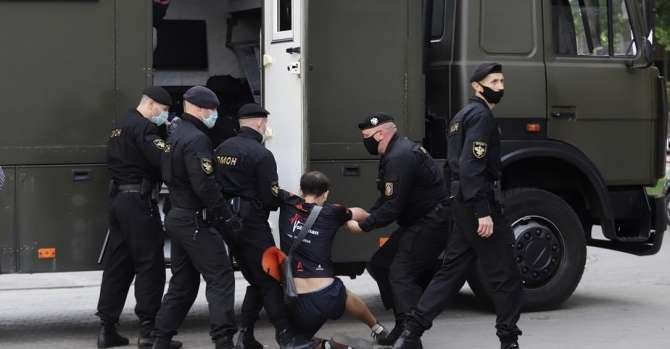
It irritated me that the riot police guys talk to each other only in foul language. When in Rome, do as the Romans do — you don’t bring up your co-workers, you’ll just get used to it. And filthy language becomes the norm. Day by day you start to swear and friends start to pay attention to it...
There is nothing special I can tell about the protests. Once they put two troops into a prison truck and drove to some backyards, we sat and waited for a command for half of a day. Luckily, no command came. I was honestly glad — I can’t stand violence.
I haven’t hit a single person during my riot police career, although some deserved a lesson. For example, you detain hooligans — and they charge at, insult you. You twist them and lay them down gently — and that’s it. Or you take a drunk person to a local police department, and it’s closed. You won’t wait until the policeman comes and you let the drunk man go. And he runs 20 meters away and starts to swear at you. But your conscience does not allow you to chase him.
Once, my colleague and I were walking around the area and saw a suspicious young man: he was talking to himself and was looking for something in the grass. We thought maybe he looked for a drug tab. We started a conversation with him — and he began to charge at us. We twisted him so as not to injure, and took him to a prison truck. And he began to yell: “I will shit on everything here.”
I remained calm: I understood that a person was emotionally unstable. And another riot police officer hit him with a baton. “Why are you doing this?” I asked. “It’s clear that this person is not adequate, and something is wrong with the psyche.” Then it turned out that the detainee had a 7B certificate — it means that he is mentally ill. He was taken to a mental hospital.
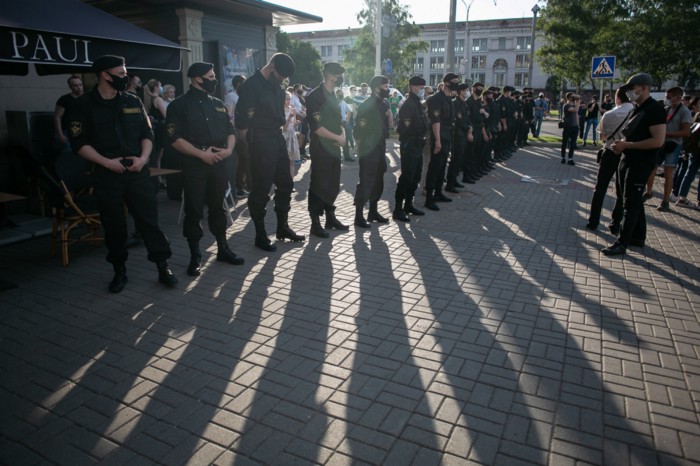
“They used to beat me up, but now I am the one doing the beating” — “And who are you after that?”
I saw a lot of things I didn’t like. For example, a policeman pushed 2 young men to sign the protocol. ”Give me a phone, I’ll call my parents.” “No, sign the paper!” If they sign, they plead guilty. If they don’t sign, they are detained with the homeless for a whole day, as the policeman threatens the guys. And the most horrible thing is that there’s no use in speaking to these policemen; they like what they do. They feel powerful this way.
You put on a uniform and feel imaginary power, you understand that you will not be attacked as it is illegal. But you take off your uniform and become invisible, and if someone strong approaches you, you will run away because you are brave only when wearing the uniform.
I was struck by his words. I realized that there are plenty of such people. To join the riot police, you need to survive three rounds with different opponents in hand-to-hand combat. The point is not that you win, but that you don’t give up and don’t run away (running away for a riot police officer is shameful). But now they also accept guys who turn away, surrender after the first round.
I watched this and realized that I can’t stand it. I saw good guys leaving the riot police.
Normally, guys from the province join the riot police: they are provided with a place in the dormitory, they can take a mortgage for an apartment, the salary is fine — 800–900 BYN (290–330 euro) for a start. What else do you need? They were joking: “We beat people, and so what?” And I didn’t find it funny. I didn’t understand them.
Before entering the riot police, I thought: it’s OK when I saw people being detained on TV because I thought they were provoking the officers. But when you work in the riot police, you understand, that maybe it’s the guys you work with that are the provocateurs. They provoke just to get an excuse for detaining. I’m glad I didn’t take part in such things.
I can’t say it took a long time to quit. I was called by the commander. I explained that I expected something completely different: “I don’t want to chase homeless people on the streets. That’s not for me.” I was fired with no problems.
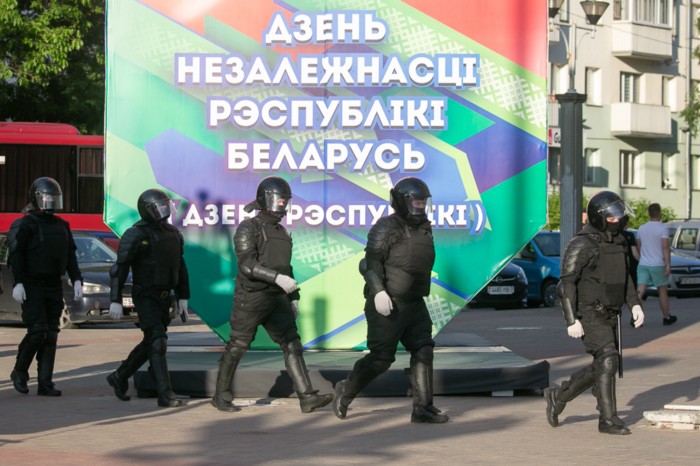
“If one riot police officer could start a career in IT, then any other would be able to.”
I had no plan B. I failed to join SOBR [The Special Rapid Response Unit] as I was sick and failed a test. I had heard about IT — but it seemed a different world where only math geeks could enter. And then I discovered that some of my mates started to work in IT. I came across an interview with a former Riot police officer who became a QA engineer. He claimed he found a job straight after courses. I realized that if he managed, I could manage too. I started to study the matter.
I got a job at a warehouse. The plan was to save up enough to study later without any distractions. I wasn’t ready to study two hours a day after work, I didn’t want the process to drag for months.
I would work double or even triple shifts at the warehouse. I would get there at 8 a.m., work till 11 p.m., stay for the night and only go home in the morning for 5–6 hours of sleep. One month I had only 5 days off. I made $1250 then — a considerable sum.
I wanted to make the same money by using my brain, not physical work. In 10 months I was completely burnt-out, lost 15 kilos. I left for a vacation but rested only 5 days, during the other 25 I studied HTML...
Right after the course I started looking for a job but was rejected: sorry, you have neither relevant experience nor the knowledge of English. That’s true, in English I could only say “my name is…”. Then I deleted my CV from everywhere and started learning English.
I had a strict schedule: got up at 6 a.m., had breakfast, then studied for 3–4 hours. Read, watched videos, studied grammar, worked on vocabulary...
By the end of the second month of studies, I understood some spoken language, could read but didn’t speak at all when I was addressed to, I was just numb. A friend of mine helped me, he took me to visit his American friend just to get me talking.
After three months of studying, I applied for an intensive course of English, for the Elementary group, but got enrolled for an Intermediate course. Then I decided it was time to catch up with the frontend. I was already skeptical about the courses, I was afraid it would be the same as my previous experience, “I sent you a file, now learn it.” And then I just happened to see an Instagram ad: a developer was recruiting students for an online course. I messaged him, we met — he promised to teach only those things which he himself needed at work, no fluff. I was happy with that.
I studied hard, sometimes up to 20 hours a day. At times it was so difficult that my brain was exploding, three times I wanted to give it all up. But of course, I wouldn’t. I intentionally didn’t make a plan B, only plan A, to become a developer, with no other options to back down.
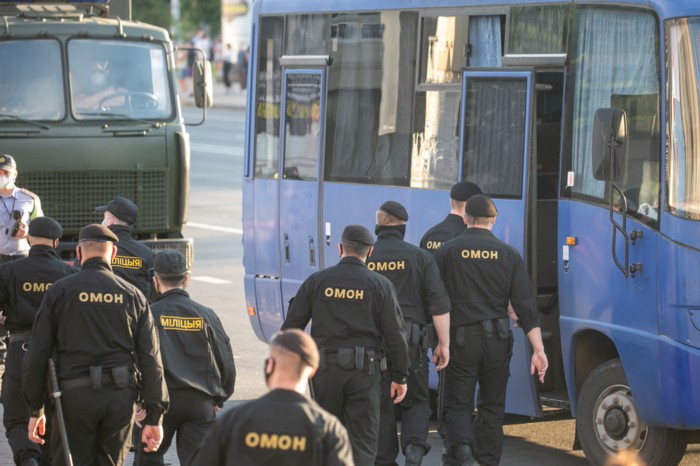
I think only 2% of security forces want to change their job and even monitor vacancies. But they are afraid.
In 5 months my teacher told me to start looking for a job. I doubted and thought I wasn’t ready. But one evening I posted my CV on LinkedIn and the next morning an HR manager contacted me. And here I am, working.
The company is in Ukraine. The work is remote, the employees are scattered all over the world. Sometimes I regret I don’t have a mentor here, I have to solve all the tasks by myself. But in such cases, my teacher comes to help me. And after I wrote on LinkedIn that I had recently quit SWAT, developers ready to mentor me turned up. That was very rewarding.
I used to flex my muscles, now I flex the brain, and it’s hungry and demands more and more knowledge.
The plans are to develop, get more experience. I applied for a course in frontend from The Rolling Scopes...
In the security forces, there are some brainy guys, about 2% want to change their job. They even monitor vacancies. But they’re afraid, they have two deterrents: “it’s not mine” or “it’s too difficult.” It’s as if they need someone who will take them by their hand: “I’ll lead you, you’ll only have to study”, then maybe some of them would agree.
As for the rest, they don’t need it. Not that they say that nobody wants people from SWAT in civil life but it is in the air. Almost everyone thinks so.
What comes to my mind when I’m reading the news about the detentions on the streets? As a citizen, I’ll say: it’s scary. As a former SWAT officer, I’ll confess that it’s no surprise. It has always been like this: they hear an order and take action.
I myself wouldn’t like to run into ex-colleagues. I thought about what would happen if I got caught and taken to a paddy wagon, probably I’d try to have a normal conversation with them. Even though I know it’s useless. And what I would really like to happen is to be sure that nobody can ever come up to me and say: “You are fired. You yourself should understand, why”.
This is a translation of the article previously published on DEV.BY with minor shortenings.
Read more:
- At least 240 arrested in Belarus protests against barring of opposition candidates (photos, videos)
- Lukashenka rival barred from running for Belarusian president surfaces in Kyiv
- Russian Wagner mercenaries arrested in Belarus: ‘little green men’ scenario, fighters in transit, or other?
- Belarusian police join #NotMyPresident flashmob amid continued rallies for Lukashenka’s rivals


